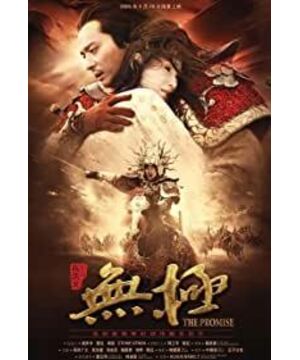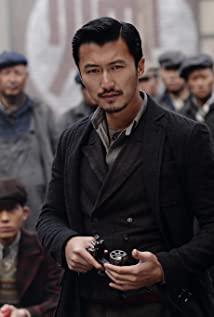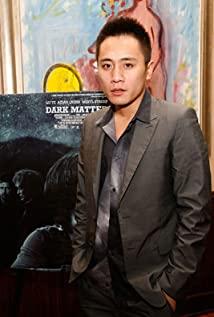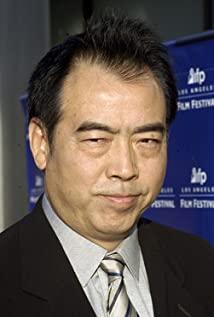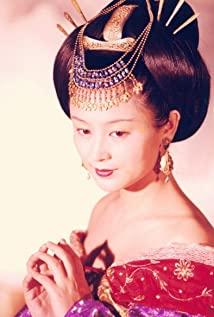But have we ever really calmed down and watched this movie carefully? Apart from the scolding, there are few rational voices. Today, I am going to correct the name of "Wuji".
"The Promise" is an oriental magic epic movie with big production, big scenes and magnificent pictures, which seems to be telling a magnificent story.
The title of the film is "Wuji", what is Wuji? The word "Wuji" means "without center" in classical Chinese. It represents the abstract understanding of the ancient Chinese on the state of things before they came into being.
A state without even a central point, where there are no boundaries to speak of. There is no center and no boundaries, this state is an endless "chaos".
The words "Lao Zi·28 Chapters": "Return to Wuji." Wuji is a Taoist concept. Refers to the original state of the invisible and invisible universe. What is the universe? The upper and lower squares are the universe, and the past and present are the universe. It corresponds to space and time in physics, and in between is everything in the universe. Yes, what Wuji takes is Hongmeng, chaos, and illusory meaning. Westerners like real things, and their senses are more similar. Classical physics tells us that if we can get the physical quantities of all substances, we can predict the trajectory behind the substances after calculation, while in our East, it is more abstract. , we are talking about 'fate', which is destiny. In fact, it is all the same. Westerners pay more attention to objects, and speculate the next action of objects through their properties. Among', comes down to 'fate'. Therefore, Chinese expressions are too subtle and general, and sometimes people can't guess. So when "Wuji" came out, people couldn't see through it, couldn't guess it, and didn't know what it was talking about. In the movie "Wuji", Wuji is the universe, and the full god in it is God, the controller of destiny, everything in Wuji is destined.
The main line of this film is Qingcheng, Kunlun, Guangming, Wuhuan. A story of a woman and four men, childhood sweetheart (No Huan), first love (Kunlun) (also the one who Qingcheng really loves), husband (Guangming) (the one who got Qingcheng's body), Wang (lawful wife) . The story begins when Qingcheng was a child.
When he first appeared, Qingcheng was hungry, looking for food, and found a steamed bun on the dead man, but at this time a child came over and snatched the steamed bun. This child was Wuhuan, Wuhuan made Qingcheng his slave, Qingcheng refused, and deceived him, beat him and stole the steamed buns. This is also the most unpredictable part of the film. How can a steamed bun involve fate, how can a steamed bun make Wuhuan hate the city so much, and even "A bloody case caused by a steamed bun" appears later to ridicule Director Chen, but , Let's think about it carefully, is a steamed bun a steamed bun? Of course, a steamed bun is not just a steamed bun. It is a material, a food, and a capital that keeps Qingcheng alive. Wuhuan refers to Qingcheng's childhood sweetheart. If you want to control Qingcheng's material, put Qingcheng takes possession, that is, in the film, it is said that Qingcheng is used as a slave, and Qingcheng refuses, beats him and deceives him, and stays away from Wuhuan, because of love and hatred, Wuhuan wants revenge. When Qingcheng grew up, she chose someone who could give her enough material. Wang, (referring to the wealthy), had the most power and the most abundant material, but they all used each other. Wang just wanted to get her body, and Qingcheng just wanted to get Wang's material. , This was reflected on the roof when the king was forced into the palace. In times of crisis, they betrayed each other without hesitation. He was rescued by Kunlun pretending to be Guangming. At this moment, Qingcheng fell in love with the person who was wearing the flower armor at the moment. Everyone thought that this person was Guangming, including Qingcheng, and Kunlun was also moved at this moment, but it could not be said that he was Guangming. slave. After that, Qingcheng fell in love with Guangming, an invincible general, but in fact Qingcheng's true love was not Guangming, but in order to get Qingcheng, Guangming deceived her and got her. After spending a sweet time, Guangming was deceived by his subordinates to the imperial city. Between power (career) and Qingcheng (lover), Guangming chose the former, Qingcheng was heartbroken, but Qingcheng still did not give up, she was still there Looking forward to the light coming back. At this time, Kunlun silently endured everything and gave everything, but because of his low status, no money and no material, he can only be a bright errand, even if he likes Qingcheng, he can't say it. In the end, it was the emotional entanglement of the four people, which ended.
If this magical story is turned into a modern urban drama, it will obviously not become "The Blood Case Caused by a Mantou", which obviously caters to the public's taste and spoof.
The story I adapted is as follows: In a poor village, Qingcheng and Wuhuan were next door neighbors since childhood. They played together until they grew up. Wuhuan wanted to keep her and stay by her side for the rest of her life, but Qingcheng disagreed. She didn’t like him at all. It's just that he was a playmate, and she didn't want to live such a poor life, so she refused to accept him. But Wuhuan came to annoy her every day, so she pretended to agree, until one day, Qingcheng moved, without any warning, and left quietly, finally Wuhuan knew that Qingcheng had deceived him, he was very sad, very angry, and swore Gotta get revenge on her.
After Qingcheng grew up, Qingcheng was like a beautiful family, so she married a rich business owner as she wished, but they were not together because they liked, Qingcheng was for money and material, and the boss was for beauty and lust. They used each other and spent some time. Finally, because the company was involved in some illegal activities, the company manager Wu Huan took this opportunity to report the case and took the police to investigate. Guangming couldn't leave for a while, so he asked his employee Kunlun to bring a lawyer there. After arriving, the boss actually wanted to put the responsibility of breaking the law on Qingcheng. Kunlun had no choice but to believe that the boss had violated the law, and the boss was imprisoned. Qingcheng thought it was the light that made him do this, but he fell in love with the light. But the fact is that Kunlun made the decision privately. But Qingcheng didn't know that Guangming was the head of the External Relations Department, and his status was not low. Kunlun was just an inconspicuous little employee, and he didn't dare to make decisions without authorization. So he believed in Guangming, and even used Kunlun as a messenger to run errands for them. At this time Wuhuan's revenge is starting. He not only wants to take revenge on Qingcheng, but also on Guangming, because he is better than himself in everything and is deeply liked by the boss. A meeting was held within the company, and it was found that it was Kunlun who blamed the boss instead of Guangming. Qingcheng finally woke up. Eventually, Wu Huan tied them in a house. Wuhuan said everything, saying that all this was planned by him, and he could finally take revenge. In the end, Wuhuan and Guangming beat each other to death, Kunlun was injured, and Qingcheng was together.
Is it clearer? Director Chen just added a magical theme to the story to make the story more mysterious.
The protagonist of the story is Qingcheng, which revolves around the story of five men. If it is said that Journey to the West is the theme of men, with the shackles of the world, with responsibility, and having to abandon love, then Wuji is the theme of women, always wanting to choose the best, but in the end, nothing.
I always feel that there are two major shortcomings in Wuji:
First, Kunlun should not live in the end, everything should end in tragedy, how many women can get true love in reality? In the end, it was their biggest failure to change their fate. What is fate? In the play, it is said that fate can be changed, just like sometimes time can be reversed, the snowflakes fluttering in spring, and life can be restarted. But can it really come back? Time is not a part of destiny. Even if time is reversed, we must continue to reincarnate according to our original destiny. Just like in the horror cruise ship, no matter how much we struggle, it is just repeating the previous trajectory and becoming a doll of fate. We are destined to be unable to escape the shackles. Of course, Chen Kaige may be trying to cater to the audience, because Chinese culture emphasizes reunion, and the audience may not like it if it ends in tragedy. But this has affected the sublimation of the film, which is a pity.
Second, Manshen appeared no less than three times in the movie. What is God? Those who control fate, will fate really remind us? Destiny is inherently illusory, you can't see it clearly, you can't touch it, you can't see your own destiny, and you can't predict your destiny. If someone has told you your destiny in advance, how much meaning does it make to live? The charm of destiny lies in its uncertainty. Sex, people are deeply involved in it, can't get rid of it, can't escape. The film has always emphasized God and fate, but what should have been understood by the audience is said bluntly. It lacks the sense of mystery and lacks attractiveness, which is also one of the film's failures.
But the movie is generally good. After all, the original creator of the magic theme shouldn't say a bad movie like most netizens said. This film has the similarities of the big talk about Journey to the West. Big talk is about the fate of men, and Wuji is about women. If the ending of Wuji is a tragedy, it will be more suitable. When the big story Journey to the West first came out, it was constantly scolding people, but it was gradually understood, and I hope Wuji can have the same fate. Of course, Wuji is not as good as Westward Journey, because Wuji has been criticized a lot, and the story is a little incomplete, which makes it difficult to undertake, but it is not a good work.
The fate of men is rough, and the fate of women is the same. Humans live in the world, but they are just ants. They are at the mercy of fate and cannot let go of their freedom. Make the right choice?
There is no escape from fate in the world.
(Everyone said that this movie is a foreshadowing of Nicholas Tse and Cecilia Cheung, and finally the dialogue between Qingcheng and Wuhuan. I also thought it was the dialogue between Nicholas Tse and Cecilia Cheung. Maybe this just fits the theme of the movie. Looking at the flowers, who can understand it)
View more about Wu ji reviews


